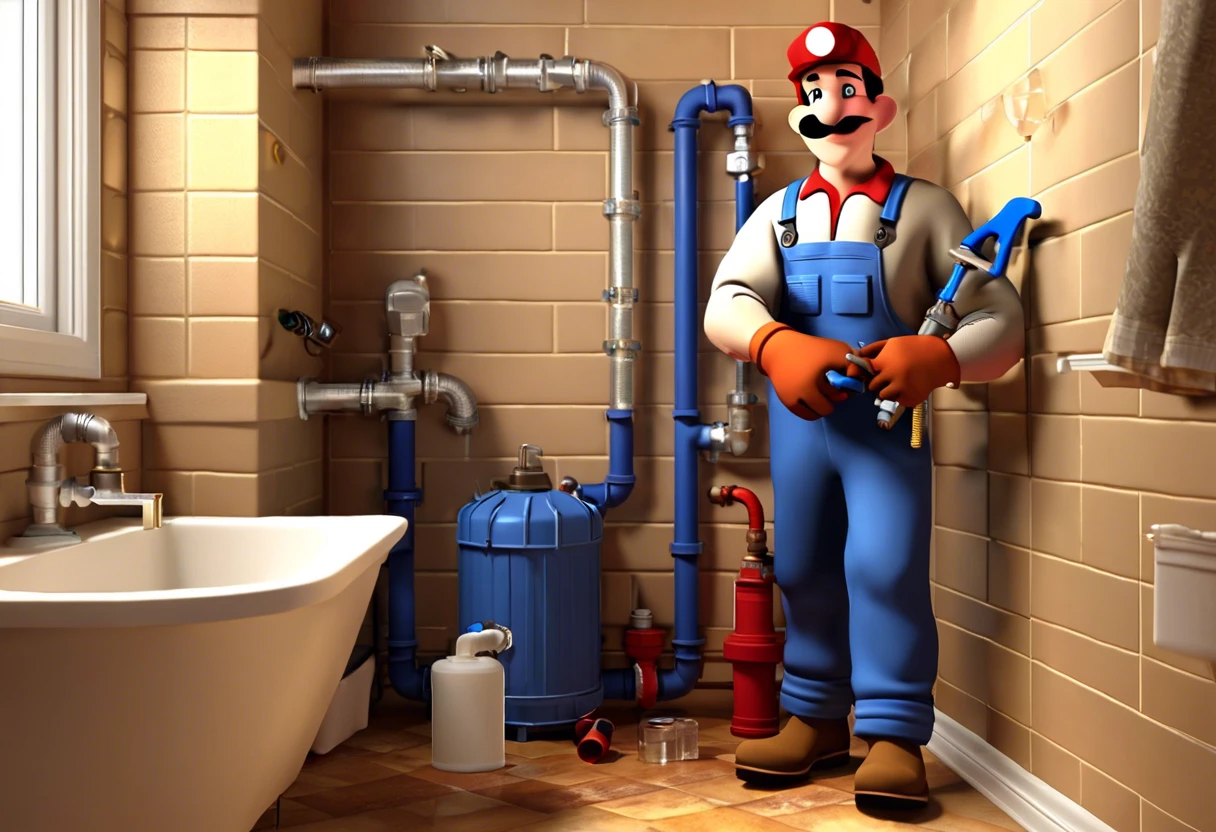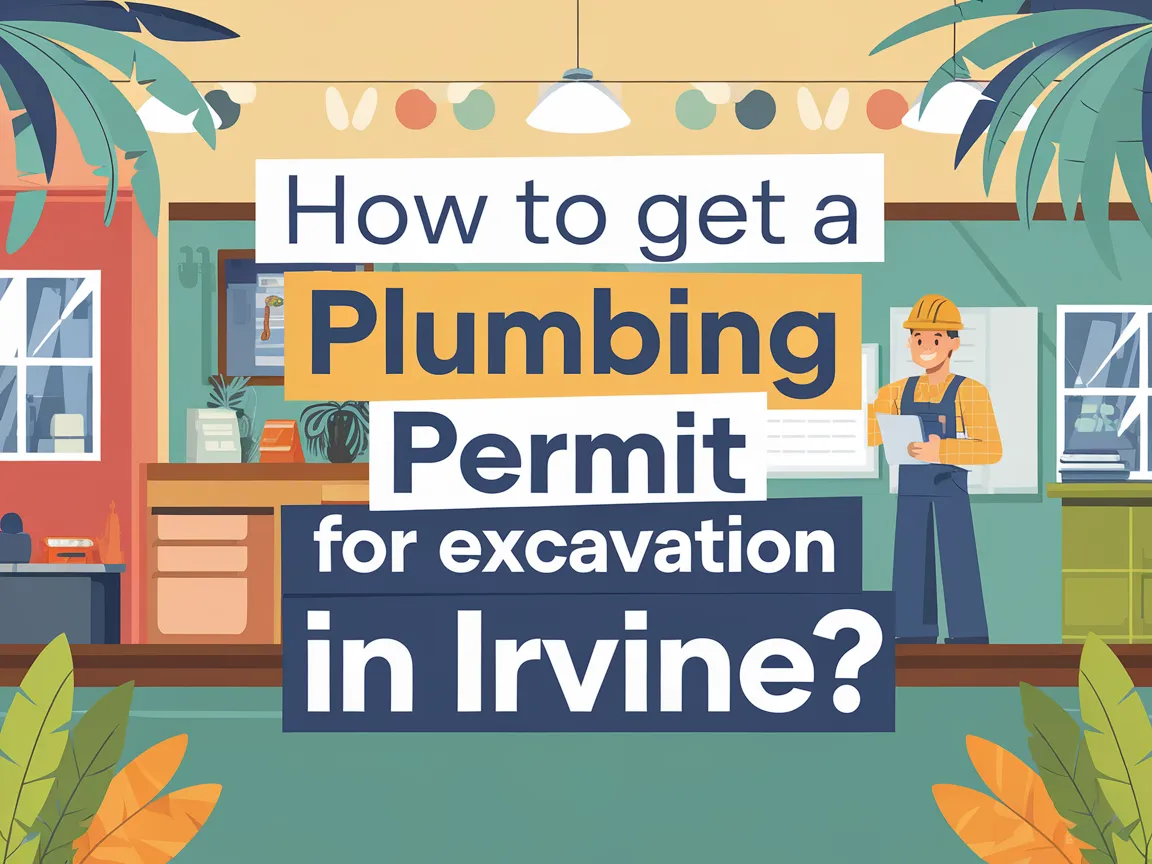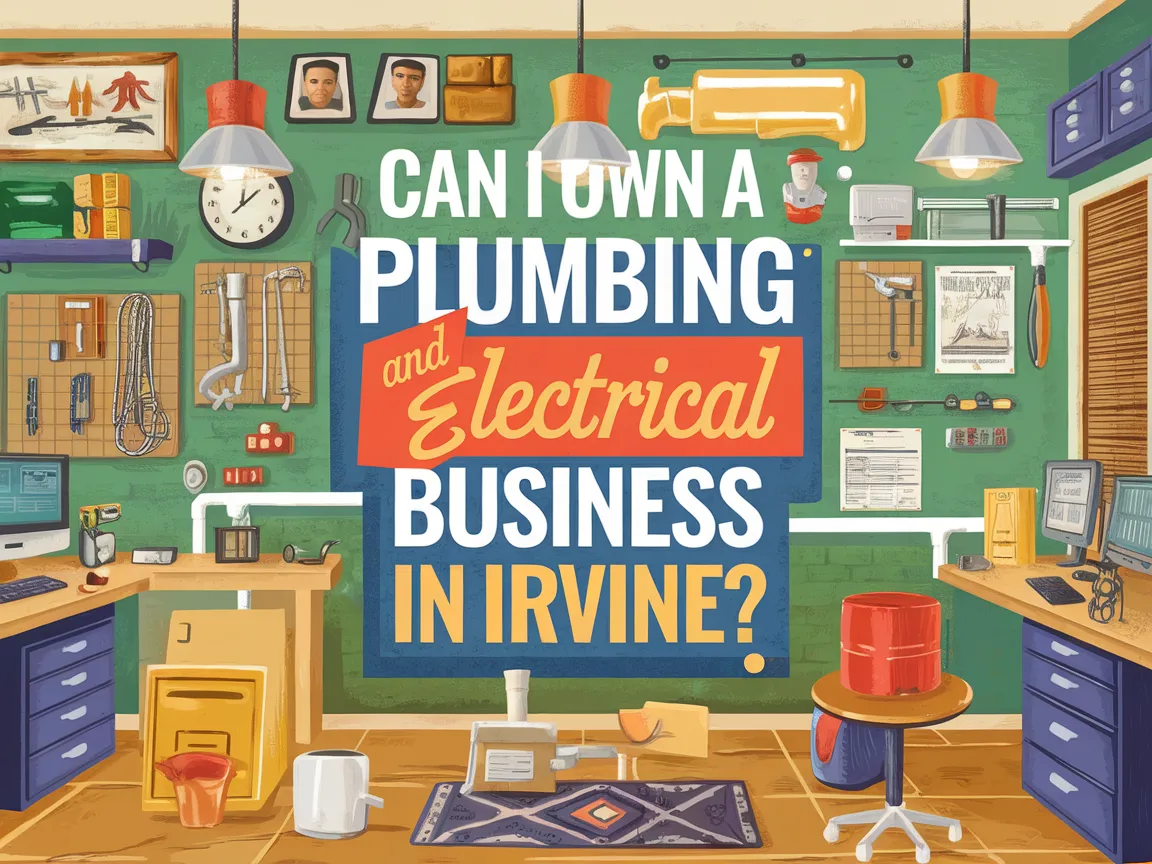How Long Does It Take to Become a Certified Plumber?
Last Updated: February 27, 2025
A plumber is someone who helps fix and install pipes in buildings, so that we have water and can use the toilet. They make sure everything works right, so we can wash our hands and take baths.
Over the years, one question that keeps coming up is how long does it take to become a certified plumber. I’ve navigated this journey myself, and I’m here to help you understand the process.
This guide on how long does it take to become a certified plumber will cover key considerations before starting, steps to become certified, costs involved, factors affecting duration, and when to seek help from plumbing experts in the field.
Table of Contents
- How Long Does It Take to Become a Certified Plumber?
- What is a Plumber?
- Before You Start: Important Considerations for Aspiring Plumbers
- How to Become a Certified Plumber
- How Much Does It Cost to Become a Certified Plumber?
- What Are the Factors Affecting the Duration to Become a Certified Plumber?
- Expected Timeline for Each Step in Becoming a Certified Plumber
- Benefits of Becoming a Certified Plumber in a Timely Manner
- How Training Duration Varies Based on Different Pathways
- How the Path to Plumbing Certification Varies Across California
- Comparison of Certification Programs Across California
- Understanding State-specific Certification Differences
- Special Considerations for Aspiring Plumbers
- When to Seek Help From Plumbing Experts and Professionals
- FAQ
- Final Words on Becoming a Certified Plumber
- Useful References
How Long Does It Take to Become a Certified Plumber?
It typically takes 4-5 years to become a certified plumber. This includes 2-4 years of an apprenticeship and a few months to a year for getting licensed. Experience and training vary by state. In California, training is crucial for quality work.
What is a Plumber?
Plumber. It’s more than just a title—it’s a specialized trade dedicated to the installation, maintenance, and repair of water and gas systems in homes and businesses. In Irvine and the surrounding areas, plumbers work with systems that distribute both potable (Drinking) water and wastewater. We use pipes, fittings, and fixtures in compliance with local plumbing codes (Like the California Plumbing Code). Professional plumbers carefully plan their daily tasks to ensure efficient service and timely project completion, which is why creating a structured plumbing work schedule is crucial.
I once helped fix a major leak at a local café in OC. Typically, becoming a plumber takes four to five years to earn formal certification through apprenticeship programs that combine hands-on experience with classroom learning. The Plumbing and Sanitation Facilities Program (PASF) ensures that every aspiring plumber gets practical knowledge of safety protocols too. It’s hella essential to stay up-to-date on local codes and regulations, especially compared to other licenses, like the P1 or P2 plumbing licenses, which apply in states like Connecticut (CT).
Before You Start: Important Considerations for Aspiring Plumbers
What do you need to get started on your journey to becoming a certified plumber?
- Plumbing Code Book: You’ll need a plumbing code book, such as the California Plumbing Code Handbook. It’s crucial for understanding local requirements and regulations.
- Tools of the Trade: Gather essential tools like a pipe wrench and pliers; I recommend the Greenlee 1908SP model. These tools help you navigate installations and repairs smoothly.
- Safety Gear: Equip yourself with safety gear, like 3M respirators. They’re necessary for protecting yourself while working on potentially hazardous projects.
- Accounting Software: Consider using software like QuickBooks. It’ll help you manage your finances and pricing once you become self-employed as a plumber.
So far we covered key factors to consider before pursuing plumbing. Let’s look at the steps to become a certified plumber next.
Also See: What is Plumb Gold? Learn Its Importance in Plumbing

How to Become a Certified Plumber
Now, let’s dive into the steps to get your plumbing certification in the most efficient way.
-
Research the Plumbing Field
Start by exploring the plumbing world. Familiarize yourself with local codes in Irvine, CA, potential salaries (Around $52,000 Annually), and the future demand for plumbers—it’s always a hot topic in the OC. When considering a career in plumbing, it’s crucial to understand how long PVC pipes typically last.
Chatting with current plumbers or plumbing associations can give you insights into what to expect and all the options available, from apprenticeships to specialized licenses. Professionals often discuss technical terminology like CTS abbreviations in plumbing.
-
Complete Required Education
Enroll in a plumbing program through a community college or technical school. Courses typically last between 6 to 24 months, covering both theoretical and technical skills you’ll need in the plumbing basics and DIY techniques. If you’re curious about specialized plumbing techniques like VTR methods in plumbing, these comprehensive programs will equip you with essential knowledge.
Be sure to check California’s mentorship programs, like those in Irvine, which align coursework with practical skills, making your resume shine right out of school.
-
Gain Practical Experience Through Apprenticeship
Secure an apprenticeship with a licensed plumber, as hands-on experience is crucial. You’ll work under a pro for around four to five years, building those sweet skills while earning a wage at the same time.
Some local businesses even offer dual enrollments, allowing you to simultaneously earn community college credit during your apprenticeship, which cuts your education time down.
-
Obtain Necessary Licenses and Certifications
After finishing your apprenticeship, it’s time to get licensed. In California, you need to apply for a contractor’s license and pass a straightforward trade test, commonly known as the plumber’s exam, to become an official Certified Plumber. When navigating the complexities of plumbing regulations, you might want to explore specific HOA plumbing requirements.
Fortunately, your apprenticeship will prepare you well for this test. Be patient—the scheduling depends on local boards, so jump on any open dates like hotcakes when they pop up!
Pro Tip: Keep building connections and stay active in your community’s plumbing forums or events; it pays off immensely when you need advice or want to land your dream job later on.
We covered the steps to becoming a certified plumber. We will now cover the costs associated with certification.
How Much Does It Cost to Become a Certified Plumber?
Getting certified as a plumber isn’t just about the knowledge; it also takes quite a chunk out of your wallet. You might expect to spend between $1,000 and $15,000 for training and certification, depending on whether you go for community college or a professional school. In my experience, it’s safe to budget around $5,000, which includes materials, license fees, and even some gear. Plus, be prepared for unexpected costs like exam prep and extra tools. From what I’ve seen, the timeline can stretch from a few months to a couple of years, with an average of about 6 to 12 months for training. Now, whether you’ll DIY part of your learning or go all-in on professionals really depends on how hands-on you are! Plumbing certification often involves complex technical requirements like understanding wet vent systems.
Breakdown Of Costs
| Expense Type | Low Estimate (USD) | High Estimate (USD) |
|---|---|---|
| Training Programs | 1,000 | 10,000 |
| Certifications & Licenses | 200 | 500 |
| Exam Preparation | 100 | 300 |
| Tools & Gear | 100 | 1,000 |
| Total Costs | 1,500 | 15,000 |
You should now have a good understanding of the expenses involved in becoming a certified plumber. In the next part, we’ll discuss the factors influencing the time needed for certification.
What Are the Factors Affecting the Duration to Become a Certified Plumber?
So, what factors determine the timeline to get certified as a plumber?
-
Training Program Length: A more extensive program can prolong the time to certification.
-
Apprenticeship Requirements: Apprenticeships with specific hour commitments can stretch your learning curve.
-
State Regulations: State-specific licensing requirements might add time, especially in California’s OC.
-
Available Testing Opportunities: The frequency of plumbing license tests impacts when you can get certified.
We’ve wrapped up the factors influencing the duration of becoming a certified plumber. Let us turn our attention to the timeline for each step.

Expected Timeline for Each Step in Becoming a Certified Plumber
Understanding how long each step takes can help you plan your journey to becoming a certified plumber.
| Step | Duration | Details |
|---|---|---|
| Research the Field | 1-2 Months | Spend time understanding the plumbing industry, local codes, and potential career paths. |
| Formal Education | 6-24 Months | Enroll in a plumbing program; duration varies based on institution. |
| Apprenticeship | 4-5 Years | Get hands-on training under a licensed plumber while earning a wage. |
| Certification Exam Preparation | 3-6 Months | Prepare for and schedule your state licensing exams after completing your apprenticeship. |
| Getting Licensed | 1-3 Months | Submit applications and wait for approval before receiving your plumber’s license. |
Benefits of Becoming a Certified Plumber in a Timely Manner
Completing your plumbing certification in a timely manner can have many benefits.
- Job Security: Quick certification opens up more job opportunities, especially in high-demand areas like Irvine.
- Higher Earnings: Being certified often leads to better pay—licensed plumbers can earn from $25 to $45 per hour.
- Professional Growth: Completing your training and certifications allows for quick upward mobility in your plumbing career.
- Networking Opportunities: The sooner you’re part of the industry, the more connections you can make, helping you land better jobs.
How Training Duration Varies Based on Different Pathways
You have different paths to choose, each affecting how long it takes to become certified.
- Community College: Approximately 2 years; full programs often include additional topics.
- Private Trade School: 6 months to a year; very focused on intensive, hands-on training.
- Apprenticeship Programs: 4-5 years; combines paid work with learning traditional methods under a skilled plumber.
- Online Courses: 1-2 years; flexible but may lack in practical experience which is key in plumbing.
How the Path to Plumbing Certification Varies Across California
Wondering how long it takes to become a certified plumber in different parts of California? Here’s what you need to know about regional differences.
- Southern California: Cities like Los Angeles and Irvine usually follow similar timelines due to high demand—expect 4-5 years.
- Bay Area: Regulations might be more stringent, potentially adding an extra 6 months to 1 year due to specific city ordinances.
- Central Valley: Training programs are slightly less rigorous, allowing some to finish in about 3-4 years, given local variations.
- Northern California: Rural areas may have fewer apprenticeships, extending durations beyond 5 years.
Comparison of Certification Programs Across California
The type of certification program you choose can significantly impact your timeline to becoming a plumber. Below is a comparison table of common programs available statewide. Plumbing systems require precise component selection, and professionals often rely on specialized reducer fittings for optimal performance.
| Program Type | Duration (Years) | Location | Average Cost (USD) |
|---|---|---|---|
| Community College | 2 | Statewide | 2,000 – 6,000 |
| Private Trade School | 6 months – 1 year | Statewide | 5,000 – 15,000 |
| Apprenticeship Program | 4-5 | Statewide | $0 (Paid while training) |
| Online Courses | 1-2 | Statewide | 1,200 – 3,000 |
Understanding State-specific Certification Differences
Being aware of state-specific requirements is crucial in your journey to becoming a certified plumber.
- California Licensing Exam: You must pass a ‘General Building’ exam and a ‘Plumbing’ exam, which can take several months to prepare for.
- Continuing Education: Some areas necessitate ongoing education every two years, adding to long-term planning for your career.
- Regional Approvals: Some counties have differing laws about plumbing practices, so definitely check with local governing bodies!
Special Considerations for Aspiring Plumbers
This section highlights unique technical factors you should know about your plumbing career path.
- Licensing Requirements: In California, you’ll need to put in at least 4 years (Approximately 8,000 Hours) of hands-on experience before you can sit for the licensing exam. Make sure to log all your hours.
- Code Knowledge: Understanding local plumbing codes is crucial, especially in areas like Irvine and the OC. You’ll need to know guidelines from the California Plumbing Code and stay up to date with specific changes every few years.
- Types of Piping: Whether it’s copper, PVC, or PEX (Cross-linked Polyethylene), knowing the pros and cons of each material can save you from costly mistakes. For example, PVC is great for drainage, while copper is preferred for high-quality water supply lines.
- Proficiency in Installation Techniques: Skills for everything—from soldering (Joining) pipes in a residential project to installing complex water and waste systems—are vital. You’ll gain these techniques during your apprenticeship.
- Health and Safety Regulations: Familiarity with workplace safety rules is essential. Expect to tackle guidelines from OSHA (Occupational Safety and Health Administration), like wearing gloves and helmets on the job site to protect yourself during service calls.
When to Seek Help From Plumbing Experts and Professionals
Okay, let’s get real—sometimes, you just need a pro. If you’re asking yourself, “How long does it take to become a certified plumber?” it’s clear you’re feeling a bit overwhelmed. Find a certified plumber with a solid reputation and real reviews, preferably one who’s local to Orange County. I’ve seen issues go from bad to worse, especially when someone tries DIY when they shouldn’t. Professionals understand the nuanced technical requirements of plumbing systems and can quickly diagnose complex copper tube size challenges.
Beware of quick fixes! If someone recommends a temporary solution for a bigger problem, that’s your cue to consider a more trustworthy option. In my experience, an honest plumber will give you a clear estimate and timeline, so make sure you pay attention to red flags like vague responses or over-the-top pricing. If you’re curious about the professional journey and skills required in this trade, check out the detailed path to becoming a skilled plumbing professional.
Also See: What is Cross Connection in Plumbing? Safety Matters
FAQ
How Fast Can You Become a Plumber?
People often ask how fast can you become a plumber? You can typically become a plumber in about 4 to 5 years, given the needed apprenticeship hands-on training. Skilled plumbing programs can also take around 2 years, allowing you to enter the workforce quicker, especially with average hourly wages around $25-$45 when licensed in California.
How Long Does It Take to Get a Plumber License?
Honestly, getting a plumber license usually takes about 3 to 5 years, focusing on the required combination of education and rigorous testing. In places like California, completing a course, then productive apprenticeship increases your knowledge and can get you springboarded relatively faster into the industry. When diving deeper into plumbing technical details, you might encounter specific components like plumbing risers that impact licensing.
Can You Make $100,000 As a Plumber?
People frequently wonder if you can make 100k as a plumber. Yes, you can absolutely earn over $100,000 annually; many plumbers with specialized skills or those owning their own businesses achieve this in hella short time windows. The potential revenue usually comes with overtime and weekend jobs during busy seasons. Professional plumbers often discover advanced techniques for maximizing their income potential.
What Skills Do You Need to Become a Plumber?
You may ask what skills do you need to become a plumber? Essential skills include strong technical sense, precise diagnosis of plumbing systems, and the tinkering ability with tools. Communication skills matter too; building relationships can speed up recommendations in local neighborhoods like Irvine and be totally productive. When planning a new construction project, it’s crucial to understand the plumbing costs for new house installations.
Final Words on Becoming a Certified Plumber
I hope this exploration has been beneficial as we covered the journey to becoming a certified plumber, including the timeline, responsibilities, key considerations, certification process, associated costs, timeline factors, and when to seek professional help.
In closing, becoming a certified plumber generally requires several years of training and experience, so keep this in mind as you chart your career path. Wishing you the best of luck with your plumbing endeavors—feel free to reach out if you need assistance along the way.
For additional insights and guidance, visit Irvine Plumbers.
Useful References
- Massey, H. C. (2018). Plumbing 101: A Beginner’s Guide to Understanding Plumbing Systems. CreateSpace Independent Publishing Platform.
- How Long Does It Take To Become A Master Plumber?
- How Long Does It Take to Become a Plumber? – FieldEdge


